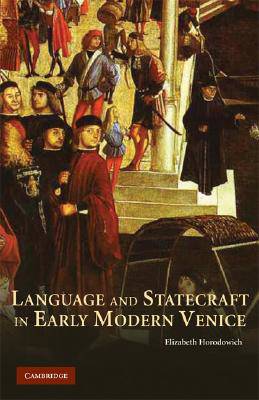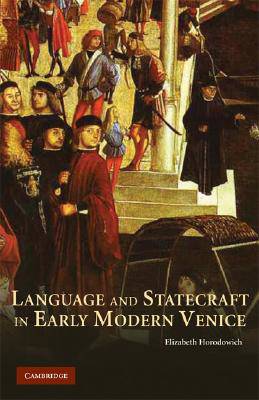
Door een staking bij bpost kan je online bestelling op dit moment iets langer onderweg zijn dan voorzien. Dringend iets nodig? Onze winkels ontvangen jou met open armen!
- Afhalen na 1 uur in een winkel met voorraad
- Gratis thuislevering in België vanaf € 30
- Ruim aanbod met 7 miljoen producten
Door een staking bij bpost kan je online bestelling op dit moment iets langer onderweg zijn dan voorzien. Dringend iets nodig? Onze winkels ontvangen jou met open armen!
- Afhalen na 1 uur in een winkel met voorraad
- Gratis thuislevering in België vanaf € 30
- Ruim aanbod met 7 miljoen producten
Zoeken
€ 107,95
+ 215 punten
Uitvoering
Omschrijving
While historians typically describe the state as emerging through a wide variety of processes and structures such as armies, bureaucracies, and administrative organizations, this book demonstrates that a crucial but unrecognized component of statebuilding in Renaissance Venice was the management of public speech: controlling foul language. Ideas about language were deeply embedded in Venetian political culture. Instead of studying the history of language through literary, printed texts, Horodowich examines the speech of everyday people on the streets of Renaissance Venice by looking at their actual words as recorded in archival documents. By weaving together a variety of historical sources, including literature, statutes, laws, chronicles, trial testimony, and punitive sentences, Horodowich shows that the Venetian state constructed a normative language - a language based not only on grammatical correctness, but on standards of politeness, civility, and piety - to protect and reinforce its civic identity.
Specificaties
Betrokkenen
- Auteur(s):
- Uitgeverij:
Inhoud
- Aantal bladzijden:
- 258
- Taal:
- Engels
Eigenschappen
- Productcode (EAN):
- 9780521894968
- Verschijningsdatum:
- 21/04/2008
- Uitvoering:
- Hardcover
- Formaat:
- Ongenaaid / garenloos gebonden
- Afmetingen:
- 162 mm x 230 mm
- Gewicht:
- 562 g

Alleen bij Standaard Boekhandel
+ 215 punten op je klantenkaart van Standaard Boekhandel
Beoordelingen
We publiceren alleen reviews die voldoen aan de voorwaarden voor reviews. Bekijk onze voorwaarden voor reviews.











